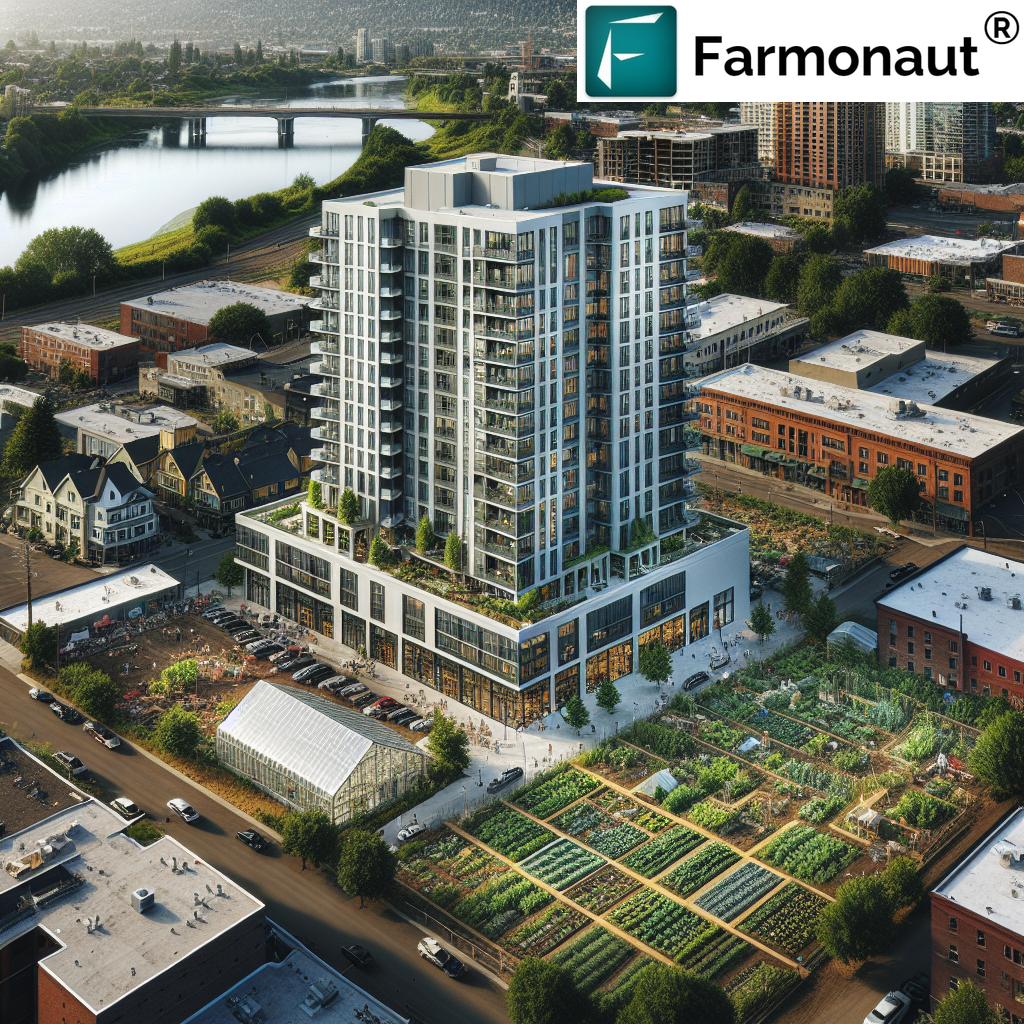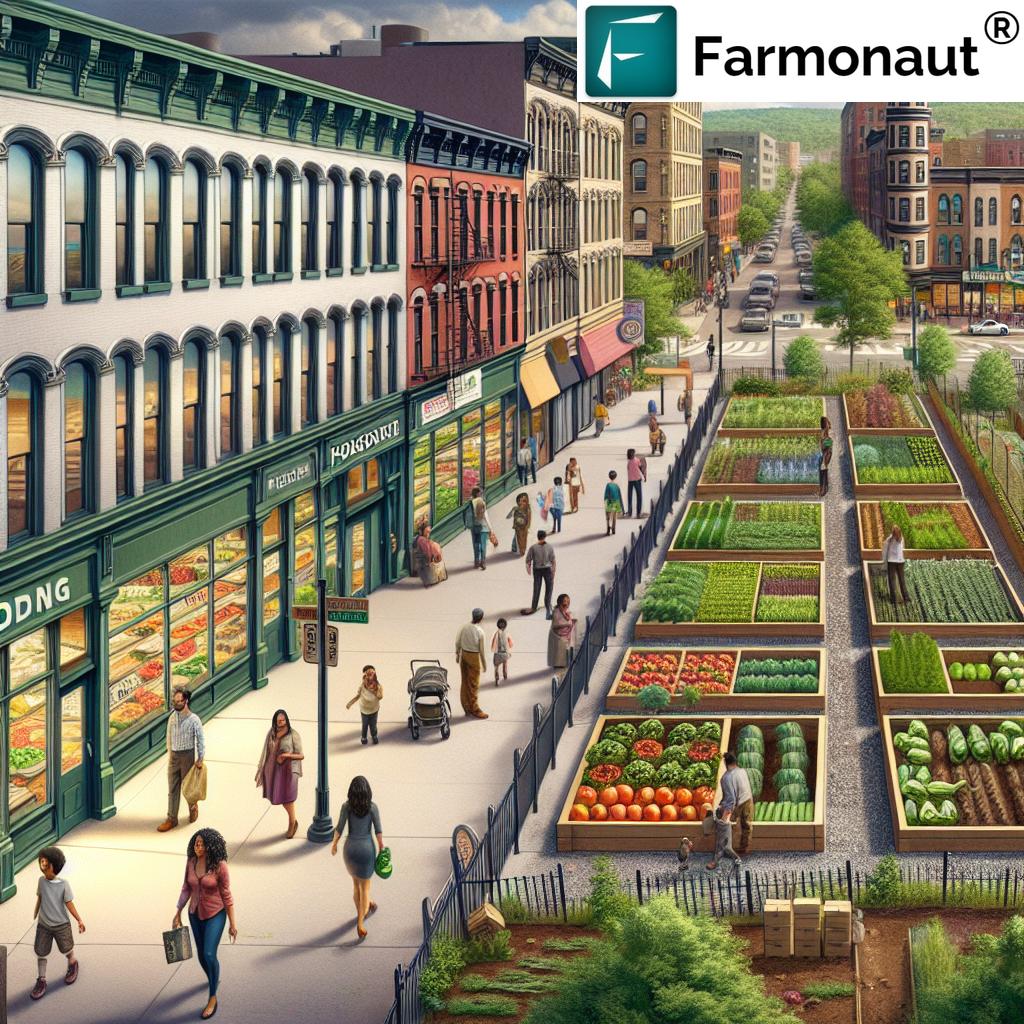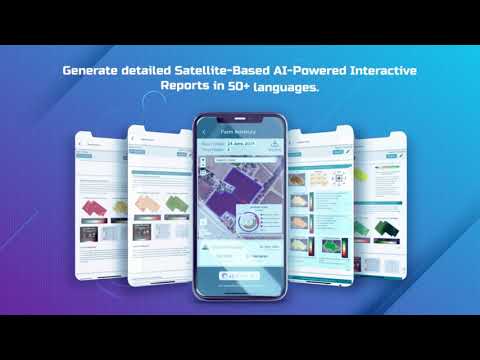Urban Revival: Wilkes-Barre Approves Mixed-Use Housing and Community Gardens in Downtown Zoning Hearing
“Wilkes-Barre’s new $30 million mixed-use project will add 120 residential units and ground-floor commercial spaces to downtown.”
We’re excited to share the latest developments in urban renewal from Wilkes-Barre, Pennsylvania. A recent city zoning hearing board meeting has set the stage for a remarkable transformation of the downtown area, approving several significant projects that promise to breathe new life into this historic city. From mixed-use housing to community gardens, these initiatives showcase a commitment to sustainable urban development and community-focused growth.
Downtown Housing Development Takes Center Stage
The highlight of the zoning hearing was the approval of a $30 million mixed-use apartment complex, marking a significant step forward in Wilkes-Barre’s downtown revitalization initiatives. Sphere International LCC secured crucial zoning variances for their ambitious six-story project at 63 S. Main St. This development is set to become a cornerstone of urban revival in the area.
- 120 residential units
- Ground-floor commercial, retail, and service spaces
- Variance for front yard setback on West Northampton Street
The project represents a major investment in downtown Wilkes-Barre, transforming previously vacant lots into vibrant living spaces. Several buildings, including the former Frank Clark jeweler structure and The Engel Building, were demolished to make way for this new development.

Brian Mclaine, a civil engineer from KSG Engineers, noted that while zoning approvals are a significant milestone, the project still faces a 6-8 month land development process before construction can begin. This thorough approach ensures that the development will meet all necessary standards and contribute positively to the urban landscape.
Community Gardens: Growing Sustainability in the Heart of the City
In a move that underscores the city’s commitment to sustainable urban agriculture and community food production, the zoning board approved an exciting expansion of an existing community garden project. Darryl Lewis from the Wilkes-Barre NAACP received permission to construct a greenhouse at 45 S. River St., building upon the success of a garden initiative that began in 2020.
Jessica Letteer, who manages the current garden, shared impressive statistics:
- 500-600 pounds of food produced annually
- Potential to double production with the new greenhouse
- Focus on regenerative agriculture and sustainable practices
This urban greenhouse development not only contributes to local food security but also promotes community engagement and sustainable living practices. Council Chairperson Tony Brooks praised the initiative, encouraging similar projects throughout Wilkes-Barre.
At Farmonaut, we recognize the importance of sustainable agriculture in urban settings. Our satellite-based crop health monitoring and AI-driven advisory systems can support community gardens like this one in Wilkes-Barre, helping to optimize yields and resource management.
Student Housing: Adapting to Educational Needs
The zoning hearing also addressed the growing demand for student housing near universities in Wilkes-Barre. Developer Vito Malacari received approval to transform a 9,060-square-foot building at 87 N. Main St. into a 10-unit apartment complex. This project demonstrates the city’s adaptability to changing demographics and housing needs.
- Conversion of former retail space into student apartments
- Mix of two- and three-bedroom units
- Focus on modern safety systems and amenities
This development caters to the student populations of nearby King’s College and Wilkes University, further integrating educational institutions with the downtown area. Such projects play a crucial role in urban zoning variances, balancing residential needs with commercial spaces in the city center.
New Businesses: Enhancing Downtown Vibrancy
The zoning board’s approvals extended beyond housing and community projects to include new business ventures, adding to the diversity of services in downtown Wilkes-Barre.
- Penn One LLC: Conversion of a jewelry store and pawn shop into a grocery store at 322 N. Pennsylvania Ave.
- Jadira Salas: Transformation of a property at 530 N. Main St. from a restaurant into a delicatessen and grocery store
These approvals highlight the city’s commitment to supporting local businesses and ensuring a mix of services available to residents. The addition of grocery stores, in particular, addresses essential needs in the downtown area.
“A community garden expansion in Wilkes-Barre aims to double food production for local residents through sustainable urban agriculture.”
Table: Wilkes-Barre Urban Development Project Summary
| Project Type | Estimated Investment | Key Features | Expected Impact |
|---|---|---|---|
| Mixed-Use Apartment Complex | $30 million | 120 residential units, ground-floor commercial spaces | Downtown revitalization, increased housing options |
| Community Garden Expansion | Not specified | New greenhouse, sustainable agriculture practices | Doubled food production, improved food security |
| Student Housing Conversion | Not specified | 10-unit apartment complex, modern safety systems | Increased student housing near universities |
| New Businesses (Grocery Stores) | Not specified | Conversion of existing properties into grocery and deli spaces | Enhanced local services, downtown vibrancy |
The Role of Technology in Urban Development
As we witness these exciting developments in Wilkes-Barre, it’s important to consider the role of technology in supporting urban revival and sustainable agriculture initiatives. At Farmonaut, we offer solutions that can complement and enhance projects like the community garden expansion.
- Satellite-Based Crop Health Monitoring: Our technology can help urban gardeners monitor plant health and optimize resource use.
- AI-Driven Advisory Systems: Providing tailored advice for urban agriculture projects to maximize yields in limited spaces.
- Sustainable Practices: Supporting the implementation of regenerative agriculture techniques in urban settings.
While our primary focus is on larger agricultural operations, the principles and technologies we employ can be adapted to support urban farming initiatives, contributing to the success of projects like those approved in Wilkes-Barre.
Explore Farmonaut’s API for agricultural insights
Community Impact and Future Prospects
The approvals granted by the Wilkes-Barre city zoning hearing board represent more than just individual projects; they symbolize a collective vision for the city’s future. These developments promise to:
- Increase residential options in the downtown area
- Enhance community engagement through urban agriculture
- Support local businesses and economic growth
- Improve the overall quality of life for residents
As these projects move forward, they will likely catalyze further investment and development in Wilkes-Barre, creating a positive cycle of urban renewal and community improvement.
Lessons for Urban Planners and Developers
The comprehensive approach to urban renewal demonstrated by Wilkes-Barre offers valuable insights for urban planners and developers in other cities:
- Mixed-Use Development: Combining residential and commercial spaces to create vibrant, multifunctional urban areas.
- Community Engagement: Incorporating projects like community gardens that directly benefit and involve local residents.
- Adaptive Reuse: Transforming existing structures to meet changing needs, such as converting retail spaces to student housing.
- Sustainability Focus: Prioritizing sustainable practices in urban development, from agriculture to building design.
These strategies can serve as a blueprint for other cities looking to revitalize their downtown areas while maintaining a strong sense of community and sustainability.
The Importance of Zoning in Urban Development
The zoning hearing board’s role in these approvals underscores the critical importance of zoning in shaping urban landscapes. Effective zoning policies can:
- Ensure balanced development that meets diverse community needs
- Protect historical assets while allowing for modern growth
- Create spaces that promote community interaction and well-being
- Support sustainable practices and environmental responsibility
Wilkes-Barre’s approach demonstrates how thoughtful zoning decisions can pave the way for transformative urban projects that benefit the entire community.

Sustainable Urban Agriculture: A Growing Trend
The approval of the community garden expansion in Wilkes-Barre reflects a broader trend towards sustainable urban agriculture. This movement is gaining momentum across cities worldwide, offering numerous benefits:
- Improved food security for urban residents
- Reduction of food miles and associated carbon emissions
- Creation of green spaces that enhance urban biodiversity
- Opportunities for community engagement and education
At Farmonaut, we recognize the potential of urban agriculture to transform cities. Our technologies, while primarily designed for larger agricultural operations, can be adapted to support urban farming initiatives, helping to optimize resource use and crop yields in limited urban spaces.
The Future of Urban Development in Wilkes-Barre
As Wilkes-Barre moves forward with these approved projects, the city is positioning itself as a model for sustainable urban development. The combination of mixed-use housing, community-driven initiatives, and support for local businesses creates a holistic approach to urban revival that other cities could emulate.
Looking ahead, we can anticipate:
- Increased interest from developers in downtown Wilkes-Barre
- Growth in community-led sustainability projects
- Enhanced quality of life for residents through improved amenities and services
- Potential for economic growth and job creation in the downtown area
These developments set the stage for a vibrant, sustainable future for Wilkes-Barre, demonstrating how thoughtful urban planning and community engagement can transform a city.
Conclusion: A Model for Urban Revival
The recent approvals by the Wilkes-Barre city zoning hearing board represent a significant step forward in the city’s urban revival journey. By embracing a mix of housing development, community gardens, student accommodations, and new businesses, Wilkes-Barre is creating a blueprint for sustainable, community-focused urban growth.
These initiatives not only address immediate needs for housing and services but also lay the groundwork for long-term community development and engagement. The emphasis on sustainable practices, particularly in urban agriculture, aligns with global trends towards more environmentally responsible city planning.
As companies like Farmonaut continue to develop technologies that support sustainable agriculture and resource management, cities like Wilkes-Barre can leverage these tools to enhance their urban development projects further. While our focus remains on larger agricultural operations, the principles of precision farming and data-driven decision-making can be adapted to benefit urban farming initiatives and community gardens.
Wilkes-Barre’s approach to urban development serves as an inspiration for other cities facing similar challenges. By prioritizing a diverse range of projects that cater to various community needs, the city is positioning itself for a vibrant and sustainable future. As these projects come to fruition, they will undoubtedly contribute to the ongoing revitalization of downtown Wilkes-Barre, creating a more livable, engaging, and prosperous urban environment for all residents.
FAQ Section
Q: What is the main focus of the recent Wilkes-Barre zoning hearing board approvals?
A: The main focus was on approving projects that contribute to downtown revitalization, including a mixed-use apartment complex, community garden expansion, student housing, and new businesses.
Q: How much is being invested in the new mixed-use apartment complex?
A: The mixed-use apartment complex project has an estimated investment of $30 million.
Q: What are the key features of the community garden expansion?
A: The expansion includes the construction of a new greenhouse, which aims to double food production using sustainable urban agriculture practices.
Q: How many residential units will the new mixed-use development provide?
A: The mixed-use development will provide 120 residential units along with ground-floor commercial spaces.
Q: What types of new businesses were approved in the zoning hearing?
A: The zoning hearing approved the conversion of existing properties into new grocery stores and a delicatessen.
Q: How does this urban development plan benefit the community?
A: The plan benefits the community by increasing housing options, improving food security through urban agriculture, supporting local businesses, and enhancing overall quality of life in downtown Wilkes-Barre.
Earn With Farmonaut: Affiliate Program
Earn 20% recurring commission with Farmonaut’s affiliate program by sharing your promo code and helping farmers save 10%. Onboard 10 Elite farmers monthly to earn a minimum of $148,000 annually—start now and grow your income!







